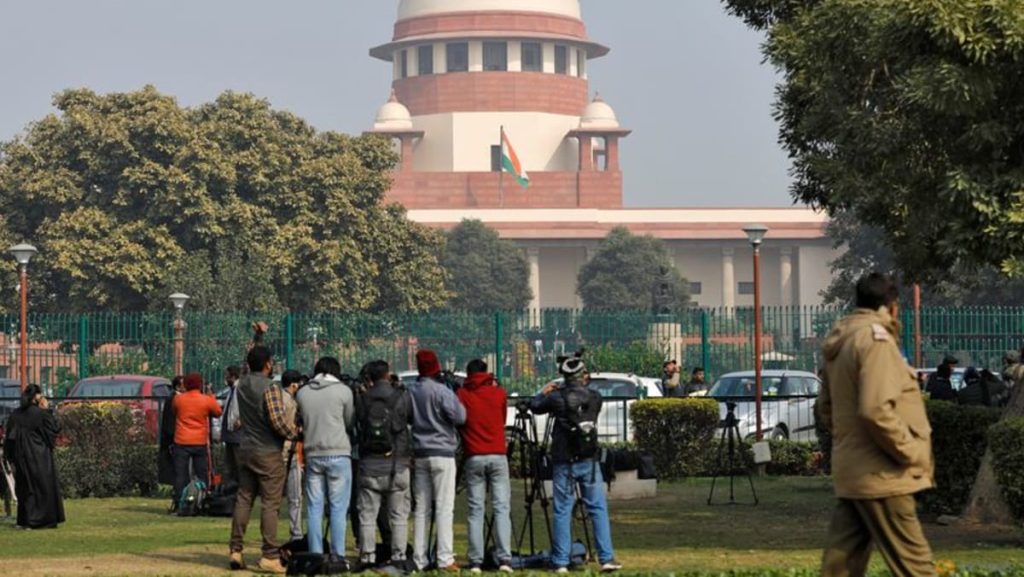The discovery of freelance journalist Mukesh Chandrakar’s body, encased in concrete within a septic tank in Chhattisgarh, India, has sent shockwaves through the nation and ignited concerns about press freedom and the safety of journalists, particularly those reporting on sensitive issues like corruption and the ongoing Maoist insurgency. The 28-year-old journalist, known for his YouTube channel “Bastar Junction,” had been actively covering these critical subjects in the region, potentially making him a target. The Press Council of India, the nation’s media watchdog, has responded with gravity, demanding a thorough investigation into the circumstances surrounding Chandrakar’s death and a comprehensive report on the facts of the case. This incident underscores the precarious situation faced by journalists in India, particularly those working in conflict zones or reporting on controversial topics.
Chandrakar’s disappearance, followed by the grim discovery of his remains, highlights the vulnerability of journalists who challenge powerful interests or expose wrongdoing. The recovery of his body was facilitated by tracking his mobile phone records after his family reported him missing, leading to the subsequent arrest of three individuals. While the exact motives behind the suspected murder remain under investigation, Chandrakar’s reporting on corruption and the Maoist insurgency suggests a possible link between his journalistic work and his tragic fate. The Naxalite insurgency, which has claimed over 10,000 lives over decades, further complicates the landscape for journalists operating in affected regions, creating an atmosphere of fear and potential reprisal against those who report on the conflict and its underlying issues.
The response from Chhattisgarh’s Chief Minister, Vishnu Deo Sai of the ruling Bharatiya Janata Party (BJP), has been swift, expressing grief over Chandrakar’s death and vowing to ensure those responsible receive the harshest possible punishment. This commitment from a high-ranking government official underscores the seriousness of the case and the importance of upholding the rule of law. However, the incident also raises broader concerns about the safety of journalists in India, a country grappling with complex challenges including internal conflicts and allegations of corruption. The demand for a thorough investigation by the Press Council of India emphasizes the need for transparency and accountability in ensuring justice for Chandrakar and protecting the rights of journalists to report freely without fear of reprisal.
India’s current ranking of 159th on the World Press Freedom Index, compiled by Reporters Without Borders, provides further context to this incident. This ranking reflects ongoing concerns about the pressures faced by journalists in the country, including threats, violence, and legal harassment. Chandrakar’s case serves as a stark reminder of the dangers journalists face when reporting on sensitive issues, especially in areas affected by conflict or where corruption is prevalent. The incident underscores the need for stronger protections for journalists and a greater commitment to upholding press freedom as a cornerstone of a democratic society. A thorough investigation and subsequent prosecution of those responsible are crucial steps in ensuring justice for Chandrakar and sending a clear message that attacks on journalists will not be tolerated.
The killing of Mukesh Chandrakar raises critical questions about the environment for journalists in India and the effectiveness of mechanisms designed to protect them. The incident calls for a comprehensive review of existing safeguards and the implementation of stronger measures to ensure the safety of journalists, particularly those working in conflict zones or investigating corruption. This includes providing journalists with adequate security training, establishing effective reporting mechanisms for threats and attacks, and ensuring prompt and impartial investigations into incidents of violence against journalists. Furthermore, fostering a culture of respect for press freedom and the crucial role of journalists in a democratic society is essential.
Ultimately, the pursuit of justice for Mukesh Chandrakar must extend beyond the immediate investigation and prosecution of those directly responsible for his death. It requires a broader commitment to strengthening press freedom in India, ensuring accountability for attacks on journalists, and creating a safer environment for them to carry out their crucial work. This includes addressing the root causes that contribute to violence against journalists, such as impunity for perpetrators and a lack of adequate protection mechanisms. Only through a comprehensive and sustained effort can India ensure the safety of its journalists and uphold the fundamental right to freedom of the press. The legacy of Mukesh Chandrakar should serve as a catalyst for meaningful change and a renewed commitment to protecting those who bring critical information to light, even in the face of danger.

